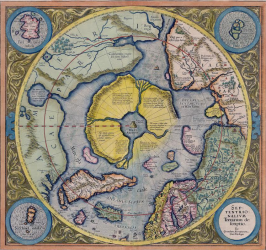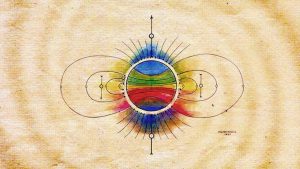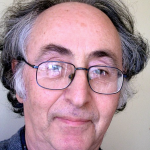We welcome a very special guest today – Eileen McKusick.
Hi David,
Thanks for keeping me on your meet-up list. I hope you had a great meeting at the end of July. Unfortunately, I have never been in a position to take part.
However, the CymaScope team are excited by a recent event, namely that Nobel Laureate, Professor Brian Josephson, showed two CymaScope videos in his recent presentation at the Royal Society of Medicine. Would you permit me to send our Breaking News story (pasted below) to your email meet-up list? Or would you prefer to do that yourself, on my behalf? They may be interested in the news concerning water memory and using the CymaScope to image the sound signatures of cancer cells and healthy cells.
If you don’t think it appropriate information to diffuse that’s okay too.
Best,
John
Professor Brian Josephson, Nobel Laureate, featured the
CymaScope in his lecture at the Royal Society of Medicine
On July 14th 2018 Professor Brian Josephson presented a lecture at the Royal Society of Medicine. The conference, titled New Horizons in Water Science, hosted many esteemed speakers including a second Nobel Laureate, Professor Luc Montagnier, Professor Gerald Pollack, Professor Vladimir Voeikov, Professor Alexander Konovalov and Dr Robert Verkerk.
Brian Josephson was professor of physics at the Cavendish Laboratory from 1974 until his retirement in 2007. He is currently emeritus professor of physics at the University of Cambridge, a Fellow of Trinity College, Cambridge, and a Fellow of the Royal Society. In his first contact with John Stuart Reid, he said of the CymaScope instrument, “Having watched one of your lectures I think your (re) discovery is going to be of great importance to the future of physics”.
In his lecture at the Royal Society of Medicine, on the subject of the memory of water and ordering processes in general, Professor Josephson presented two CymaScope videos, one of which concerned the memory of water. He said, “The idea that water can have a memory can be readily dismissed on the basis of any of a number of easily understood invalid arguments” and then proceeded to explain to the audience why these arguments are invalid. To support his presentation he included a CymaScope video that appears to show water’s ability to remember a sonic input frequency injected into the CymaScope’s visualizing cuvette, after the frequency has been removed. He also presented a video showing the sound of a cancer cell made visible, part of a research project in collaboration between Professor Sungchul Ji of Rutgers University, Dr. Ryan Stables of Birmingham University and the CymaScope lab.
Professor Josephson said, “Water exhibits remarkable structural and dynamic properties, including the ‘biological signal’ revealed by the investigations of Beneviste and Montagnier and the complex acoustically-induced structures in water revealed by the CymaScope. Organised dynamical behaviour is more the province of biology than of physics and will require different tools of investigation than are standard in physics. The CymaScope may be one such tool. It is not just a new scientific instrument but new science as well and I suspect a new field of maths.”
John Stuart Reid said, “We are honoured that Professor Josephson discussed the CymaScope in his lecture at the New Horizons in Water Science conference. We believe that the CymaScope instrument has the potential to open new horizons in physics, biology, homeopathy, musciology, phonology and many other areas of scientific study. ”
Professor Josephson’s lecture can be viewed at this link and includes a clip from Dr Gary Buchanan’s Beethoven/Moonlight Sonata video.
https://youtu.be/fiDD60w1ERI
https://youtu.be/eW4RzcRxpwQ
https://youtu.be/6OFbhZLzzUY







